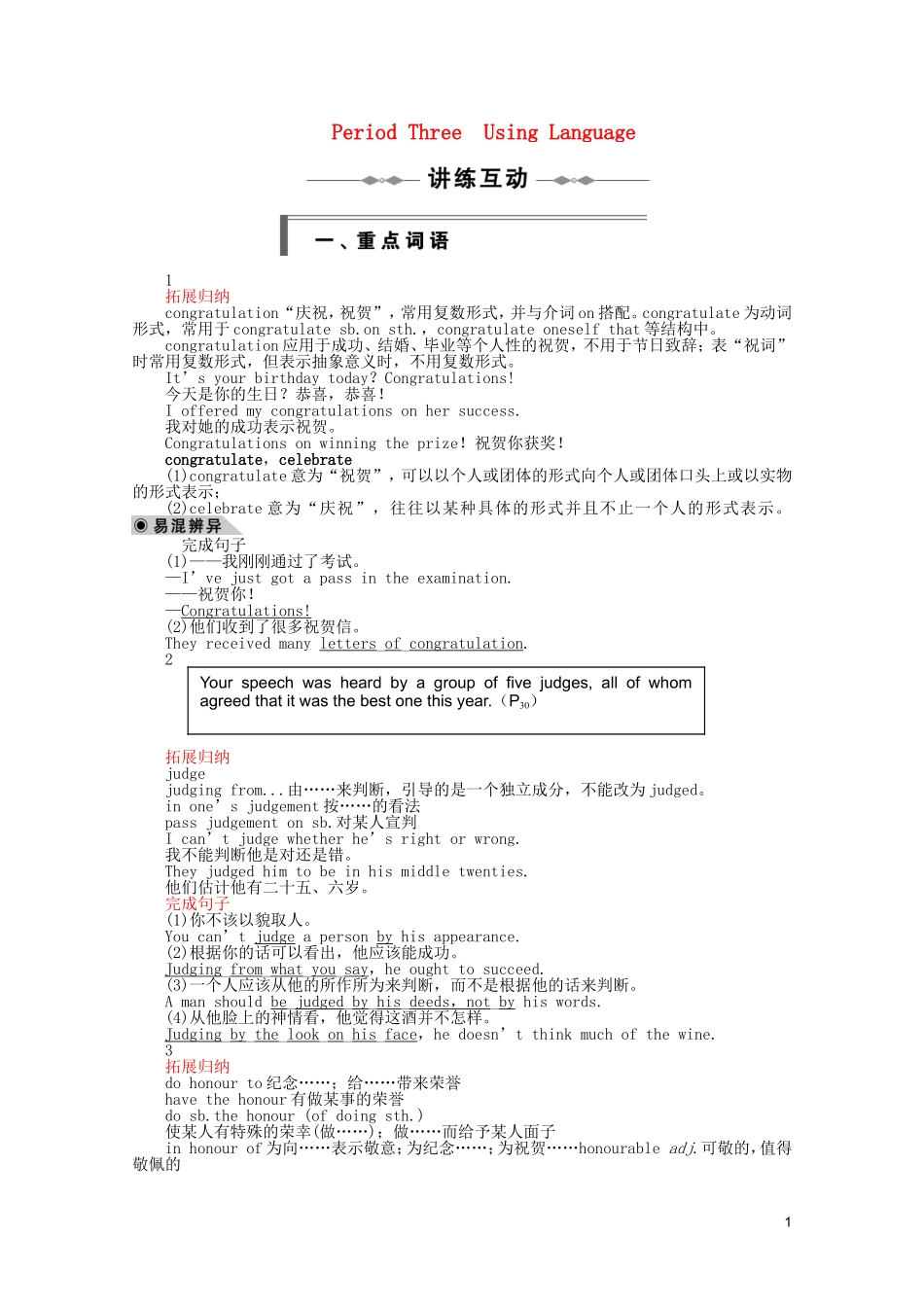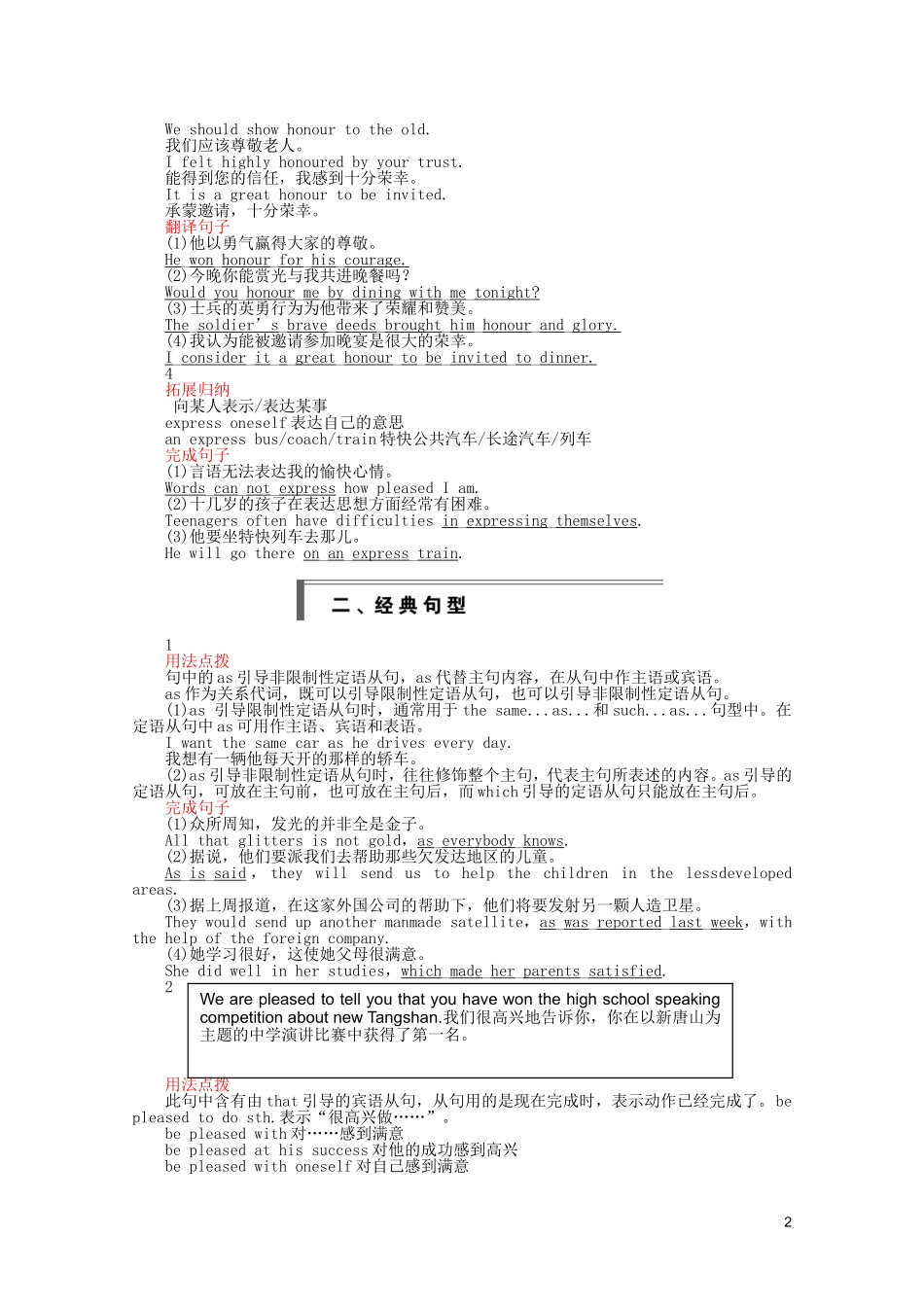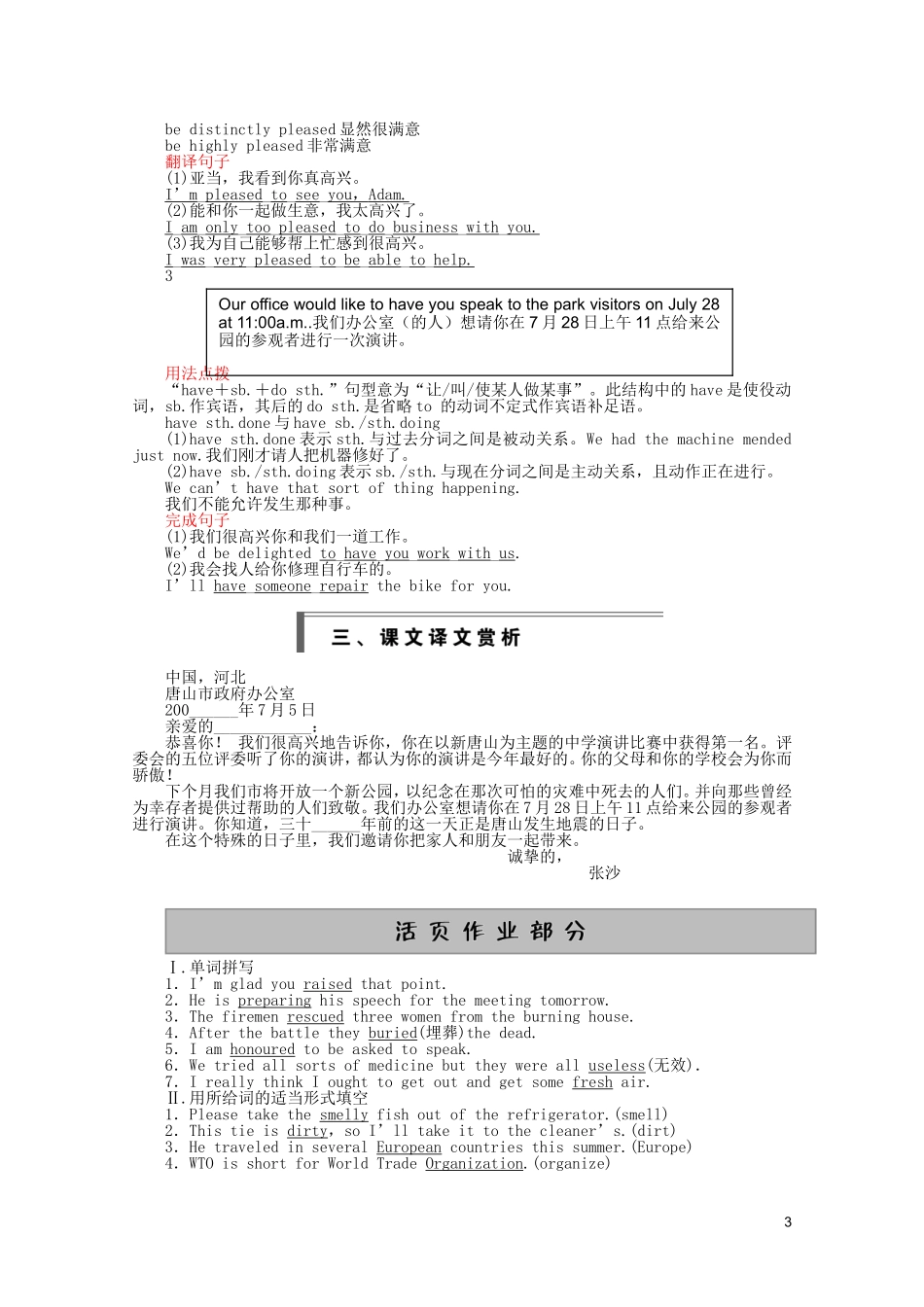Period Three Using Language1拓展归纳congratulation“庆祝,祝贺”,常用复数形式,并与介词 on 搭配。congratulate 为动词形式,常用于 congratulate sb.on sth.,congratulate oneself that 等结构中。congratulation 应用于成功、结婚、毕业等个人性的祝贺,不用于节日致辞;表“祝词”时常用复数形式,但表示抽象意义时,不用复数形式。It’s your birthday today?Congratulations!今天是你的生日?恭喜,恭喜!I offered my congratulations on her success.我对她的成功表示祝贺。Congratulations on winning the prize!祝贺你获奖!congratulate,celebrate(1)congratulate 意为“祝贺”,可以以个人或团体的形式向个人或团体口头上或以实物的形式表示;(2)celebrate 意为“庆祝”,往往以某种具体的形式并且不止一个人的形式表示。 完成句子(1)——我刚刚通过了考试。—I’ve just got a pass in the examination.——祝贺你!—Congratulations!(2)他们收到了很多祝贺信。They received many letters_of_congratulation.2拓展归纳judgejudging from...由……来判断,引导的是一个独立成分,不能改为 judged。in one’s judgement 按……的看法pass judgement on sb.对某人宣判I can’t judge whether he’s right or wrong.我不能判断他是对还是错。They judged him to be in his middle twenties.他们估计他有二十五、六岁。完成句子(1)你不该以貌取人。You can’t judge a person by his appearance.(2)根据你的话可以看出,他应该能成功。Judging_from_what_you_say,he ought to succeed.(3)一个人应该从他的所作所为来判断,而不是根据他的话来判断。A man should be_judged_by_his_deeds , not _by his words.(4)从他脸上的神情看,他觉得这酒并不怎样。Judging_by_the_look_on_his_face,he doesn’t think much of the wine.3拓展归纳do honour to 纪念……;给……带来荣誉have the honour 有做某事的荣誉do sb.the honour (of doing sth.)使某人有特殊的荣幸(做……);做……而给予某人面子in honour of 为向……表示敬意;为纪念……;为祝贺……honourable adj.可敬的,值得敬佩的1Your speech was heard by a group of five judges, all of whom agreed that it was the best one this ...


